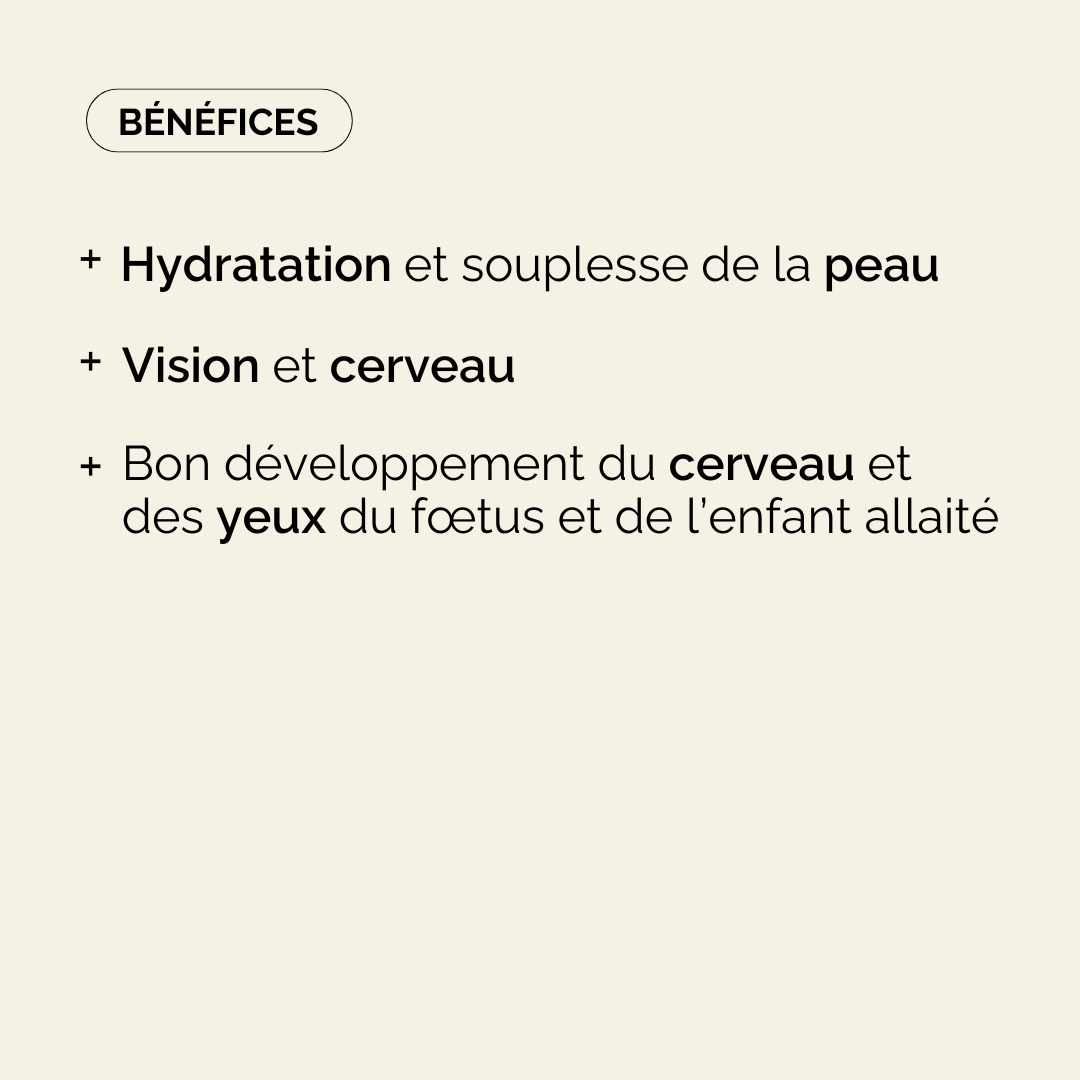Cravings during pregnancy: myth or reality?
Pregnancy is a time of physical and emotional upheaval for a pregnant woman. Among the many changes she may experience, food cravings hold a special place. We often hear about the infamous pregnancy cravings, but what are they really? Are they a myth or a reality? How can you manage them?
Why do pregnant women have cravings during pregnancy?
Pregnancy cravings are a common experience for many pregnant women, and can be explained by several reasons:
> Experts agree that these cravings are often linked to hormonal fluctuations that occur during pregnancy. Levels of hormones such as estrogen and progesterone can influence taste and smell sensations, which can lead to unusual food preferences.
> According to a 2014 study published by the National Library of Medicine , pregnancy cravings can also be influenced by psychological and emotional factors such as stress, anxiety, and mood swings. Expectant mothers may then experience specific cravings to comfort themselves or find emotional relief during this transitional period.
> Cravings can also be a way for the body to meet specific nutritional needs. A craving for strawberries, for example, could indicate a vitamin C deficiency.
> Food cravings are also sometimes a way to calm unpleasant pregnancy nausea or acid reflux.
Finally, note that from one pregnancy to another, these sudden cravings can be completely different and that they do not indicate whether you are expecting a boy or a girl.
When do cravings start during pregnancy?
Some women report cravings as early as the first month of pregnancy, while others may take some time to experience specific cravings. Every woman is unique, and her hormonal changes can vary.
According to a study conducted by the University of Burgundy, food cravings tend to occur mainly during the first trimester of pregnancy , between the 5th and 13th week. However, it is important to note that cravings can occur at any time during pregnancy and can even persist throughout the nine months.
Cravings can also be seasonal. For example, some expectant mothers will crave ice cream and fresh fruit during the summer months, while others will prefer warm, comforting foods during the winter months.

How to manage your cravings during pregnancy?
If you're an expectant mother experiencing cravings during your pregnancy, it's important to manage them in a healthy and balanced way. Here are some tips to help you:
- Satisfy your cravings in moderation: If your current craving is a grapefruit or strawberries with every meal, no problem.
On the other hand, if as soon as you wake up, your brain is asking you for a big burger with oily fries, it's less easy to give in to your impulses!
At Boome, we don't like constant pressure, so unless you suffer from gestational diabetes or it's strictly forbidden by your doctor, we strongly recommend that you give in, from time to time, to the temptation of these little indulgences that are good for your morale. And if this need for rich foods is really too frequent, the little trick is to try to favor small quantities: sometimes 1 or 2 bites are enough to calm a sudden craving.
- Vary your diet: Eating a balanced diet overall remains essential for your health and that of your baby, so don't limit yourself to just one type of food. Try to incorporate a variety of nutritious foods into your diet to meet all your nutritional needs.
- If your cravings are caused by the need to calm pregnancy nausea , know that the feeling of hunger that often causes this nausea can often be alleviated by a little fresh ginger (10 g per day maximum). So next time, if you vomit, choose a ginger infusion rather than a bag of crisps!

Achat express
The most common pregnancy desires among expectant mothers
Some pregnancy cravings are common, while others are more unusual. Here are some of the most commonly reported cravings among pregnant women:
- Strawberry Cravings: Strawberries are the epitome of those overwhelming cravings during pregnancy. This may be due to their sweet, refreshing taste and their vitamin C content.
- Chocolate Cravings: Chocolate is a comforting and stimulating food, which may explain why many pregnant women can't get enough of it during their pregnancy. Others may prefer to reach for peanut butter...
- Pickle Cravings: Pickle cravings are often attributed to a salt deficiency or electrolyte imbalance. With their salty taste, pickles can help satisfy this craving.
- Craving ice cream or regressive foods: Sweet treats are a real comfort when you're feeling a bit down during pregnancy. They can bring sweetness, a feeling of freshness, and even nostalgia, at a time in your life when you need to be pampered.
- Red meat cravings: Some pregnant women experience cravings for salty foods, especially red meats, which may be related to iron deficiency. Red meats are an important source of iron, an essential nutrient during pregnancy.
Be careful, despite your desires, certain foods are prohibited during pregnancy, such as fish containing high levels of mercury, raw or undercooked meats, unpasteurized dairy products, and foods rich in caffeine.
It's important to note that some pregnant women may develop non-food cravings, called pica, which is an intense desire to consume inedible substances. Pica is considered an eating disorder and can include the consumption of dirt, clay, chalk, paper, and other unusual materials.
The exact cause of this disease is not fully understood, but studies suggest it may be linked to nutritional deficiencies, particularly in iron, zinc, and calcium.
It is important to note that consuming inedible substances poses health risks to both the mother and the fetus. These substances may contain harmful contaminants or toxins.
Additionally, they can interfere with the normal absorption of nutrients needed for the baby's growth and good health.
If you experience non-food cravings during your pregnancy, it is imperative that you consult your healthcare professional immediately.
Are there also disgusts in pregnant women during pregnancy?
In addition to cravings, it's common for pregnant women to experience food aversions. Foods that were once enjoyed can suddenly become repulsive.
According to a study published by Harvard, food aversions during pregnancy may be linked to smell aversions, morning sickness, or even hormonal changes.
Overnight, some pregnant women may experience a pronounced disgust for certain foods, which can make it difficult to eat them.
It's important to respect these disgusts and not force the consumption of foods that elicit intense disgust. In some cases, it may be better to seek food alternatives that meet your nutritional needs while avoiding foods that provoke strong disgust.
Whether savory or sweet, your cravings will only last as long as your pregnancy. Listen to your body, its needs, and trust yourself.
And to complement your diet, whether it is perfectly balanced or not, Boome supports you throughout your pregnancy, offering you natural vitamins that take care of you and your baby.










